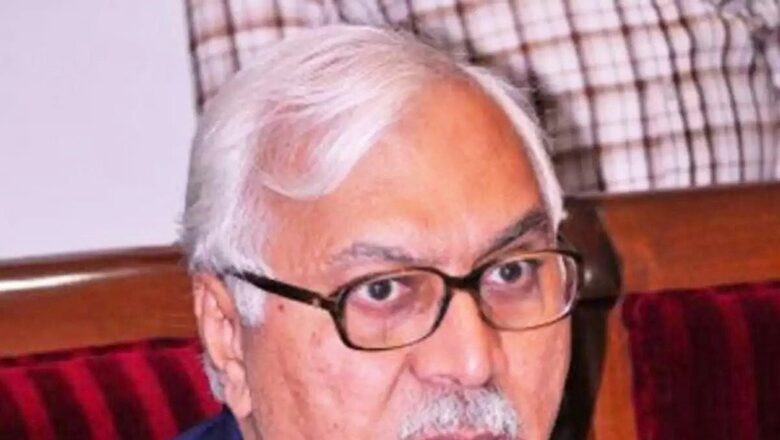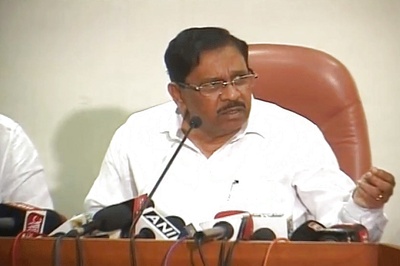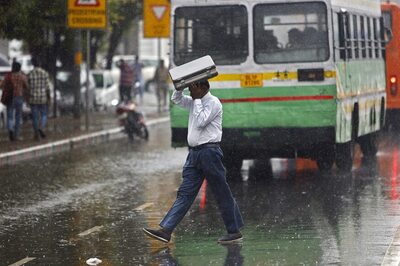
views
Ahead of the 2024 Lok Sabha elections, former IAS and 17th chief election commissioner (CEC) SY Quraishi has penned a new book—India’s Experiment with Democracy—to provide an analysis of electoral, legal, and regulatory issues that aid all democratic practices in India.
In the book, published by HarperCollins India, he has spoken at length about topics that have been haunting the Election Commission of India and its various demands regarding reforms. One such topic was the ECI’s neutrality.
Quraishi, in the book, explained how the ECI and the Supreme Court are independent authorities, deliberately separated from the executive. However, while the SC’s order and decision cannot be disobeyed for fear of contempt, that is not the case with the ECI. When asked if that is making the ECI a toothless tiger, the former CEC said that the poll body has been effective even without the contempt power for decades.
“When the ECI proposed the idea of contempt of court power for itself I had opposed it. Remember it has been effective even without this for decades. If it is strict, bold, and neutral in taking action, its reputation and effectiveness will survive,” he told News18.
The book talks about the ECI, the democratic history of India, and various dialogues and debates around them starting from the first Lok Sabha election to the one in 2019 and even the assembly elections. It also discusses international elections.
In India’s Experiment with Democracy, Quraishi examines several key questions that the country is facing today, including One Nation, One Election’, credibility in EC, infighting in parties for symbols, and horse trading and defection.
In one of the chapters, he discusses crime and politics and how even after an SC judgement, things have not improved. When asked what is the way out and who is at fault that MPs and MLAs with criminal charges are being elected, he said that the ECI, the government, and the Supreme Court, all three have a role to play.
“I will take the government first. We have been demanding that candidates against whom criminal cases of heinous nature are pending should be debarred from contesting, as recommended even by the Law Commission. The SC had taken cognisance of it and had ordered that cases against politicians should be taken up on the fast track and decided within a year,” he said.
If that is not done, the concerned courts will report to the respective chief justices of the High Courts with reasons. “It’s almost 10 years, we have not seen any results. SC has not even reviewed it. The role of ECI is limited and they are playing it well,” he added.
While speaking about the 2019 general elections in the book, Quraishi says that it is politicians who flout the Model Code of Conduct but the ECI is questioned and blamed. On how to overcome this and how it can be ensured that political parties and candidates follow the rules, he said that the ECI has often been called “toothless” because of its “limited power in enforcing model code”.
“Since it is not a law but a voluntary code agreed upon by politicians themselves, advice, warning, and censure is all that can be done. Actually, it has a great moral authority that people miss. The way the politicians are portrayed after receiving the notice is quite impactful,” he said.
Besides, he added that FIRs are also registered simultaneously which take years to fructify.
“The EC was criticised in 2019 for not even issuing notices against some top leadership till the SC came down on it. This selectiveness from the Election Commission is not acceptable,” he said.
The book also discusses the reforms the ECI and the overall system needs to make it more inclusive. One such issue was reservation for women. While it has now been passed by Parliament, its implementation may take some time.
“I have been advocating women’s reservation for years and I am happy that finally an Act has been passed. I hope it will be implemented in the 2029 Lok Sabha elections. I am sure it is doable. Till then, who stops the political parties from giving more tickets to women? (West Bengal chief minister and All India Trinamool Congress head) Mamata Banerjee has already demonstrated it by getting more women in Parliament than the quota seeks. (Odisha chief minister and Biju Janata Dal head) Naveen Patnaik also gave tickets to more than 33% women,” he said.
Quraishi added that women may seem docile in the beginning but will come into their own very quickly. “We can already see some women making their presence felt very impressively.”
In another chapter, he discusses simultaneous elections but says that while having logistical advantages, it has several constitutional issues. “Unless a political national consensus is built, these are not possible.”
He also advocated for state funding of political parties in elections but expressed displeasure that it has not been considered by them.
“I have advocated state funding of political parties instead, through a national election fund. No party has bothered to even look at the proposal. Funding can be done by corporates (which they are already doing by giving directly to political parties) with a ban on individual donations,” he told News18.
Priced at Rs 699, the 552-page book will be launched in Delhi on Wednesday.
















Comments
0 comment